I've been taking this Kadha / herbal tea to boost my immunity since last 3 months. And I am happy to say that I haven't had a cold, cough, fever or any respiratory ailment all these days. [By the way Kadha is called as Kashayam / Kashaya in the South.]
Yoga guru Baba Ramdev had suggested taking this Kadha or herbal decoction as one of the effective ways to bolster immune system protection. He also added that people should do yogasanas and pranayama , particularly, Bhastrika, kapalabhati and anulom vilom to increase immunity.
Luckily for me, the ingredients mentioned by him were very much available at home and most of them are, anyway, a part and parcel of every kitchen pantry in India.
So, I have been preparing this immunity booster herbal tea every now and then and having half a glass of it once or twice a day.
Yoga guru Baba Ramdev had suggested taking this Kadha or herbal decoction as one of the effective ways to bolster immune system protection. He also added that people should do yogasanas and pranayama , particularly, Bhastrika, kapalabhati and anulom vilom to increase immunity.
Luckily for me, the ingredients mentioned by him were very much available at home and most of them are, anyway, a part and parcel of every kitchen pantry in India.
So, I have been preparing this immunity booster herbal tea every now and then and having half a glass of it once or twice a day.
Baba Ramdev's Immunity Booster Herbal Tea
INGREDIENTS:
- Handful of Basil (Tulsi) Leaves - Around 10-15
- 2 sticks of Giloy / Amrutavalli / Amrutaballi / Guduchi / Tinospora cordifolia
- Fresh Ginger - 1 inch
- Fresh or Dried Turmeric (Haldi) - 1 inch
- 1/2 inch mulethi / Yashtimadhu / Jesthamadhu / Liquorice Stick
- 1 small stick of cinnamon / Dalchini
- 2-3 Cloves (Laung or Lavang)
- Black Pepper (Kaali Mirch) - 1 tsp
- One liter of water
PROCEDURE:
Take the turmeric (I used the dried one), mulethi, cinnamon, cloves, black pepper and crush them in a mortar and pestle. See the figure.Lightly crush the giloy sticks also.
Grate the ginger or if you wish you can crush it on the mortar and pestle also.
After this, take a liter of water and place it on the gas stove. Firstly add the Tulsi leaves. Then put all the crushed ingredients in it.
Let it come to a boil. Then simmer it and allow it to boil till the quantity of water reduces to almost half.
Have half a cup or 200 ml of the prepared decoction (preferably warm) once or twice a day and consume it slowly sip by sip. If you prefer, you may strain it and have it but I prefer to take it as it is.
Benefits of Using these Ingredients in respiratory diseases
Tulsi (Holy Basil)
Tulsi, for long has been known to have innumerable medicinal benefits. Tulsi contains vitamic C - it has antiseptic, antiviral and analgesic properties.Tulsi leaves are the perfect antidote to fight through viral infections like cold, fever, cough etc; it also increases immunity and helps recover from infections quickly.
Tulsi has for long been used in Indian (desi) folk remedies and Ayurveda to fight all kinds of viral infections and is the herb of choice for all sorts of fever and cough.
Tulsi tea, provides great relief for those suffering from chronic cough, acute or allergic bronchitis, asthma etc. Tulsi's immunomodulatory (enhances immunity) and antitussive (anti-cough) properties provide relief to the respiratory system. Additionally chewing few Tulsi leaves is also recommended to get rid of stress.
Natural home remedies with such as Tulsi tea or inhaling the fumes in which Tulsi leaves are boiled can considerably reduce coughing bouts and soothe sore throat and irritation.
Guduchi / Giloy
Also called as Amruta (nectar of Gods) (also called as Amritavalli in Tamil or Amrutaballi in Kannada), this herb is a potent ayurvedic drug, used extensively in treatment of fever, diabetes, urinary tract disorders, anaemia, jaundice, asthma, cardiac disorders etc.Scientific studies also evaluate and confirm the benefits of this medicinal herb like Immunomodulatory, Hepatoprotective, Cardioprotective, Antiinflammatory, Antioxidant, Analgesic effect, anti-pyretic, anti-viral and wound healing properties. Guduchi is an immunity booster; it activates the immune system of the body, boosting immunity and promoting vitality in a person.
Guduchi can successfully treat ailments such as bronchitis and chronic cough. It pacifies the mucous membrane of your respiratory system thereby making it very effective against asthma also.
Turmeric (Haldi)
Turmeric and its compounds (curcumin), have antibacterial and antiviral effects against some of the microbes that cause upper respiratory tract infections. These can also help prevent and treat the flu, common cold, pneumonia, sinusitis, and ear infections.Turmeric is anti-inflammatory; curcumin has been shown to reduce the activity of toxins that create inflammation. Turmeric has antioxidants which can help your body neutralize free radicals such as superoxide, hydroxyl and hydrogen peroxide, and neutralizing these free radicals may help reduce inflammation in the lungs.
It also acts an expectorant. As such, turmeric has been shown to break down mucus, which makes it easier for your body to remove the mucus from its airways. The break down and removal of mucus may also help relieve coughing and improve your ability to breathe.
Curcumin thus helps up in boosting up the immunity and helps to fight against viral replication.
Do read: Home remedies with turmeric (Haldi)
Mulethi / Jesthamadhu / Yashtimadhu/ Jethimadh / Atimadhuram / Liquorice
Mulethi is herb of choice for all kinds of of respiratory troubles. I had mentioned in one of my home remedies for dry cough as to how liquorice or jesthamadhu had helped get rid of my hacking, dry cough.Armed with anti-inflammatory, antibacterial, anti-asthamatic, antitussive properties, licorice works wonders in treating the common cold, cough and flu symptoms.Its antioxidant properties help to reduce inflammation specifically in the bronchial tubes.
Mulethi thins and loosens the mucus inside the airways, this eases coughing and congestion. It eases breathing and helps the body to get rid of mucus.
It is highly beneficial in treating bronchitis and asthmatic conditions. Daily intake of this herb strengthens the lung tissues and enhances lung health. Mulethi helps to treat certain disorders such as liver damage, non-alcoholic fatty liver disease, hepatitis and jaundice.
Ginger (Adrak)
Ginger is one of the oldest herbs that has been in used as a home remedy for a cough or cold. Scientific research shows that ginger has medicinal properties that could help ease the symptoms of a cold or sore throat.There are many benefits of eating ginger, including better lung health. Its anti-inflammatory properties helps to break down mucus, making it easier for your body to expel air.
It also helps improve circulation to the lungs. One of the best ways to use ginger to ease respiratory infections like cold, fever and cough is to boil chopped ginger in water and drink it as a tea.
Black Pepper (Kaali Mirch)
Black pepper has antibacterial and anti-inflammatory properties which is helpful to keep respiratory issues at bay and provide relief from discomfort. Black pepper is also enriched with vitamin C, which naturally boosts the immunity and works as an excellent antibiotic.All kinds of homemade herbal tea that are used to ease symptoms of cold, fever, cough or sore throat normally use black pepper as one of its ingredients.
Adding a pinch of black pepper to turmeric milk is well-known to most of us as it enhances the curcumin absorbing capacity of the body. Turmeric milk or turmeric latte, as you all know is a potent remedy to get rid of colds and coughs.
During monsoons and winter, it makes sense to add a bit more of pepper to most of your dishes to enhance your immunity and prevent yourself from different diseases. Ayurvedic expert, Dr. Giridhar Kaje from Bengaluru, especially recommends this - not just for black pepper but for most other spices with medicinal value.
It is best to crush the peppercorns for maximum benefits. Black pepper is also known to alleviate chest congestion and declog nose.
Also read: Home remedies with black pepper or kaali mirch
Cinnamon (Dalchini)
Cinnamon is one of the oldest spices that has been used in many home-remedies worldwide. It acts as antioxidant, anti-inflammatory, antilipemic, antidiabetic, antimicrobial, and anticancer agent.It fights effectively against respiratory infections such as sinus infection, bacterial infection, bronchitis, coughing, bacterial infections in cystic fibrosis, ear infection and recurrent respiratory infections. Being a powerful anti-bacterial, cinnamon is the best remedy in stomach flu and bacterial infections.
However consuming dry cinnamon sticks or inhaling cinnamon powder is not recommended for respiratory problems. One of the best ways to ease respiratory issues with cinnamon is to boil a small piece of it or add a pinch of its powder in water, bring it to boil, strain the liquid and have the tea.
You may also like: Home remedies with Cinnamon
Cloves (Laung or Lavang)
Did you know that cloves or laung can also alleviate a respiratory infection?Neil Schachter, MD, a professor at the Mount Sinai School of Medicine in New York City explains: "Cloves work as an expectorant, loosening mucus in the throat and esophagus so you can cough it up."
Also read: Home remedies with cloves (Laung)
Final Thoughts
The body's immune system is the first line of defense when threatened by microorganisms such as bacteria, viruses, parasites, and pathogens.With the continuous warnings about the threat of dangerous flu strains, it's a good idea to take charge of your health and find effective ways to strengthen the immune system.The best way to boost your immune system is through the nutrients we consume on a daily basis. Usage of Ayurvedic herbs and spices is one of the ways fight disease in the body and defend the body against any on coming disease.
With the onset of monsoon season, the body's immunity is somewhat compromised and respiratory diseases are on the rise.
Ayurvedic experts recommend eating a tablespoonful of Chywanprash daily to enhances the immunity, specifically that of lungs and the respiratory system.
Partap Chauhan, Director, Jiva Ayurveda suggests that putting two-three drops of sesame oil in each nostril and sniffing it in will not only lubricate the nasal passage and throat, but also strengthen the inner mucus membrane to keep away foreign bodies.
'Nasya', a therapeutic treatment for the nose, throat, sinuses and head, can be done with medicated oils like anu oil and shadabindu oil, he adds.
Dr Chauhan also stresses on the importance of neem for respiratory issues; so I have started taking this neem herbal tea, once in a week not just to fight stomach infections but also to guard against respiratory issues. This herbal tea is a must during rainy seasons to fight all kinds of infections.
Besides nutritious diet and other Ayurvedic supplements and Kadhas, some other ways of keeping your immune system and health in order is to drink plenty of water, get adequate sleep, exercise moderately and regularly and also find ways to beat stress either by practicing mindfulness or meditation.
Last but not the least, wash your hands regularly and properly with a hand wash or a soap. Maintaining good personal hygiene is essential, as it not only helps boost immune system but also helps maintain overall good health. Read The ultimate guide to handwashing.
So what are you doing to boost your immunity against respiratory diseases? Did you try this herbal tea or Kadha? How did you find it? Do you recommend any other kadhas or supplements that have worked for you? Do share in the comments.
References:- https://www.dabur.com/dabur-chyawanprash/immunity-boosting-foods/guduchi-ayurvedic-herb-for-boosting-immunity.aspx
- https://www.researchgate.net/publication/331087814_GUDUCHI_A_POTENTIAL_DRUG_IN_AYURVEDA
- https://lunginstitute.com/blog/the-lung-health-benefits-of-turmeric/
- https://www.netmeds.com/health-library/post/mulethilicorice-powder-benefits-uses-ingredients-method-dosage-and-side-effects
- https://www.lybrate.com/topic/mulethi-benefits-and-side-effects
- https://www.salinetherapy.com/health-benefits-cinnamon-respiratory-diseases/
- https://lunginstitute.com/blog/five-natural-remedies-promote-lung-function/
- https://www.ncbi.nlm.nih.gov/pmc/articles/PMC3604064/
- https://www.ncbi.nlm.nih.gov/pmc/articles/PMC4466762/
- https://www.health.com/mind-body/4-clever-uses-for-cloves
- https://www.newindianexpress.com/nation/2020/mar/08/what-ayurveda-has-to-offer-in-fight-against-coronavirus-2114046.html
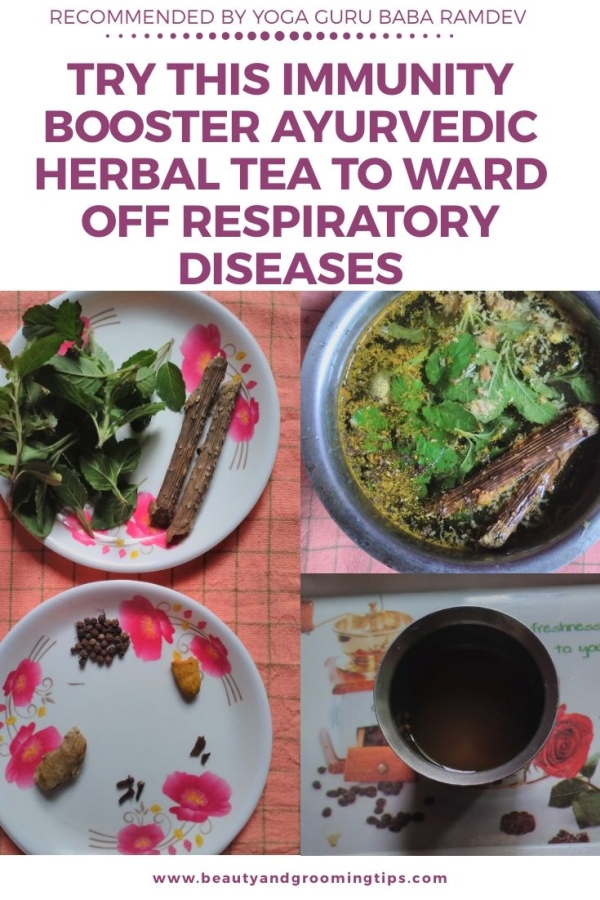
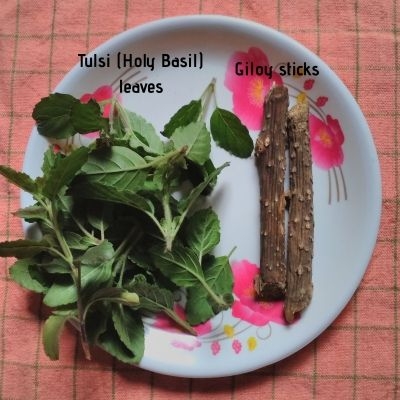



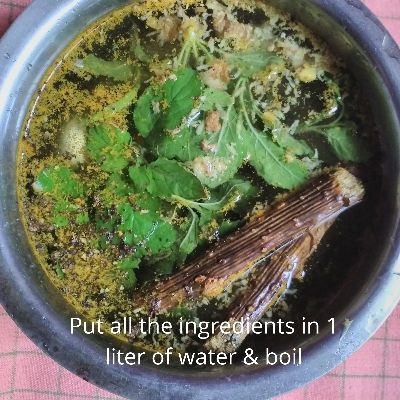


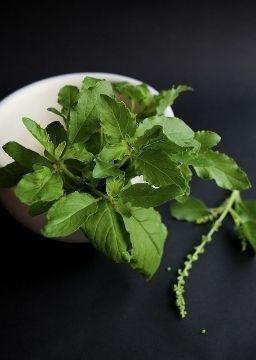

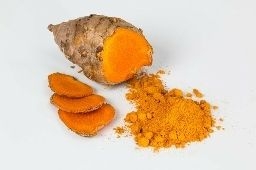

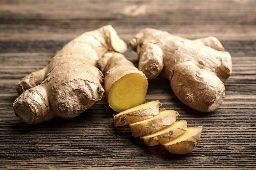
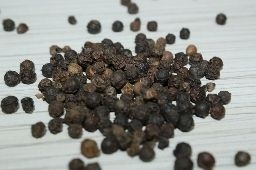
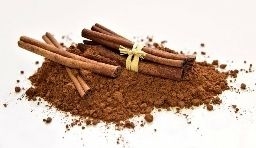
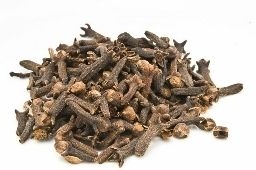
Excellent kashayam .I also prepare this kada regularly.It helped me a lot when I had cold & cough.
ReplyDelete